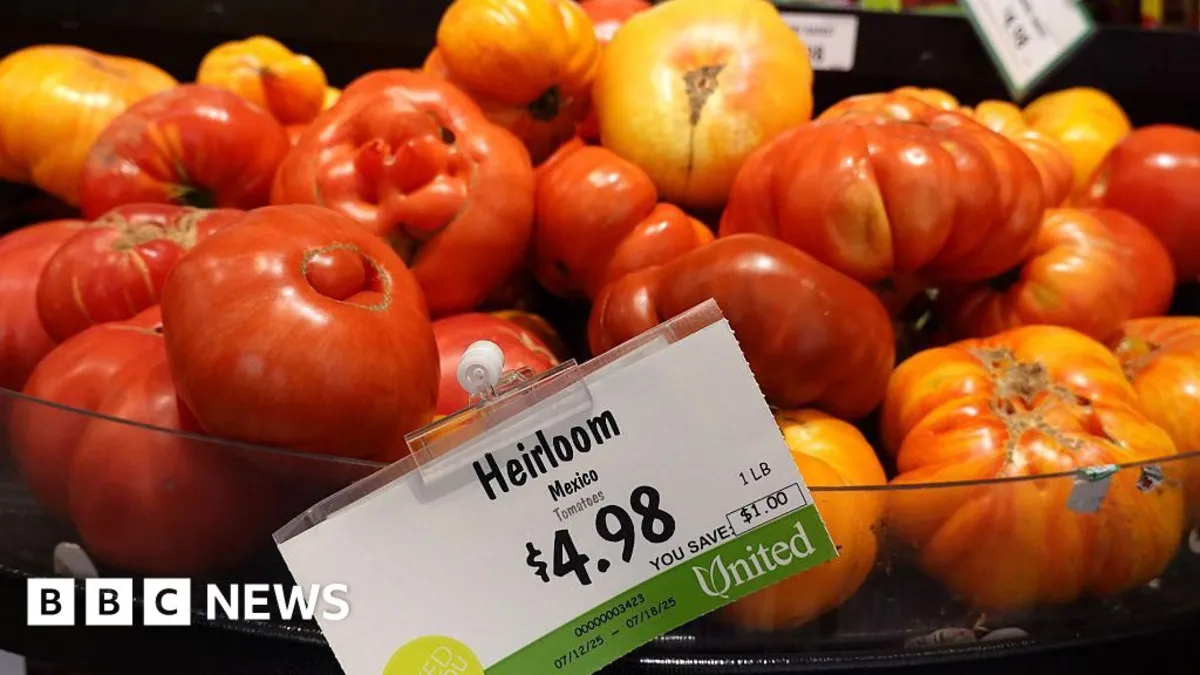
The United States government has announced an immediate 17% tariff on most tomatoes imported from Mexico. This significant trade measure comes after the U.S. withdrew from a longstanding agreement with its southern neighbor, claiming that the deal failed to protect American tomato growers from unfairly priced imports.
US Secretary of Commerce Howard Lutnick expressed concerns that American farmers have been struggling under unfair trade practices that undermine the pricing of produce like tomatoes. He emphasized the need for action to support local agriculture and ensure that U.S. tomato growers receive fair prices for their products.
In response, the Mexican government has vigorously rejected accusations of dumping tomatoes at low prices in the U.S. market, arguing that the popularity of Mexican tomatoes can be attributed to their superior quality.
The newly imposed tariff is expected to result in higher prices at supermarkets and restaurants, including pizza parlors and Mexican eateries. Popular products such as tomato-based pizza sauces and salsas are likely to be adversely affected by these price increases. It is noteworthy that approximately 70% of tomatoes consumed in the U.S. are imported from Mexico, as highlighted by the advocacy group Florida Tomato Exchange.
Proponents of the tariff argue that this measure will encourage consumers to purchase tomatoes grown in the U.S., ultimately boosting local trade and benefiting American farmers. However, the Mexican economy and agriculture ministry have stated that it would be challenging to replace the volume of tomatoes imported from Mexico.
The Mexican government has expressed its intention to negotiate a new deal to mitigate the impact on its producers while promising to assist Mexican tomato growers in finding new markets for their products.
The quest for protective measures for U.S. tomato growers dates back to 1996, when they first petitioned the U.S. government, claiming they were being undercut by Mexican growers. At that time, they accused their Mexican counterparts of dumping tomatoes in the U.S. market at prices lower than their normal value.
To safeguard its tomato growers, the U.S. implemented an antidumping order, which imposed duties on imported tomatoes to enhance the appeal of U.S. tomatoes for consumers. Since then, the two countries have engaged in five agreements that suspended these tariffs in exchange for Mexico's commitment to sell tomatoes at or above a minimum price. The recent withdrawal by the U.S. pertains to the latest suspension agreement, signed in 2019.
In addition to the tomato tariff, the U.S. president has threatened to impose a 30% tariff on all Mexican goods starting August 1. This potential action stems from the administration's belief that Mexico has not done enough to address issues related to narco-trafficking in North America.
Moreover, other countries, including Brazil, China, and the EU trading bloc, have also been warned about possible tariffs imposed by the U.S., indicating a broader trend of escalating trade tensions.